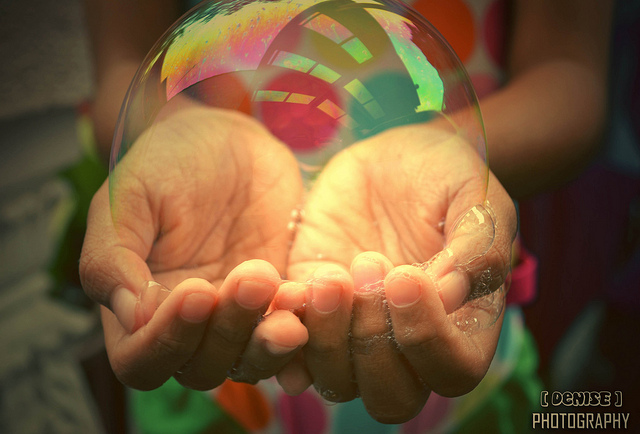
It is rare that compassion has a price.
It is rare that caring and wanting to be a shoulder or a stepping stone for someone else, wanting to reach out and be available actually takes something away from us.
But the truth is, for some people, that line is a blurry mess between taking care of others, and taking care of ourselves.
As empaths and bleeding hearts, we have the potential to damage ourselves when we absorb the worries and trials of others. This is especially challenging when our hands are tied—when we can do nothing to help, yet our hearts break for the difficulty of others.
Organizations and charities play on these heart strings to drum up support and solicit donations. It makes perfect sense: show footage or photos of animals being abused, or children starving in third world countries, and people like me are sick to our stomachs, writing out checks. At one point, I was donating to more than half a dozen charities a year while I held my breath for my own mortgage to clear.
But it easier to say that we can’t afford to donate than it is to say that someone we love that their problems are not ours to solve. We have all been there—watching someone make a mistake while we stand watching helpless on the sidelines.
A beloved friend of mine married twice, both times to men who took advantage of her incredible kindness and pursuit of passion. As she embarked on the second marriage, my circle of friends clung tightly to one another in a deep hope that our concerns were unfounded. When she cried that it had fallen apart, that she had failed twice in marriage, my stomach flipped and turned with sickness for her broken heart. But I could do nothing, as I could do nothing when she married him.
My compassion and empathy for her had disturbed my own peace with anger and anxiety on her behalf.
I am sensitive to the vibrations of other people’s troubles—my heart goes out of my chest and into the world. A friend with a crisis is a crisis I absorb. And sometimes, this absorption can obscure my own peace.
So where do we draw the line, if there is one—between our own suffering and the suffering of others? What do the spiritual gurus and intelligent forefathers of thought have to offer to the empaths of the world to avoid this pitfall? How do we find balance?
“If your compassion does not include yourself, it is incomplete.” ~ Jack Kornfield
A dear friend of mine told me once that I had to create a “thicker skin.” At first, I was insulted. I felt this meant I was too sensitive. But he meant exactly that, pointing out that it was both a blessing and a curse to feel life so deeply—and the experts seem to agree.
Learning to develop a filter, to understand what serves me so I can serve others, and knowing what hurts me, rendering me helpless, is key. Turning away from information that upsets me is my right. I stopped watching the news more than a decade ago, and reading the newspaper was quickly thereafter.
If I am paralyzed by my empathy, then my compassion for others is useless.
Building this skin takes time and conscious effort. If I feel my heart racing at someone else’s struggle, I know I need to step back before I can fairly analyze how to be supportive or helpful. A broken heart is not strong enough to carry a burden for someone else.
Being selfish—in the best way possible—is another helpful concept if we wish to keep our peace while being of benefit to others. The empty vessel cannot fill the cups around it. Understanding that my own soul-health is paramount to being able to show compassion and kindness is a lesson I’ve had to learn over and over.
Time to be in solitude is something I have learned to carve out for myself. The need to quiet the energies around me, to focus inward, through meditation and yoga, allows me to be selfish, reflective, and recharges me. Without this, I would exhaust myself searching for stores of emotional energy I didn’t have to give.
Accepting and assigning boundaries is another key to survival and achieving balance. It is incredibly easy for someone who feels compelled by compassion to take on the lonely, lost, depraved, and unhappy of the world. There are certain situations that really cannot be solved, even by the most compassionate or empathetic of us.
Discovering the need for my own peace in balance with the desire to help others, has become an essential journey for me. This means knowing when to say no, when my help comes at a greater cost than I can bear, or when to step back from the urge to save someone from their own fate—especially when they take no steps to save themselves. These experiences have all been glaring opportunities for my soul to detach from someone else’s pain even while I still recognise it. In doing so, ensure I preserve myself first, before I seek to help others.
Boundaries are difficult to erect and even harder to keep, but my impulse to cry for someone else cannot overwhelm my underlying peace.
Compassion is as much about own peace, as it is the good of those around us.
When we struggle in a difficult relationship our first lesson is to understand that compassion and forgiveness are just as valuable in keeping our own hearts protected, as they are in serving others.
The peace we obtain by not allowing others’ actions or situations to affect us so deeply that we lose our own footing is a truly altruistic spiritual goal.
Learning to keep this balance is learning to master our ability to both love and feel peace, despite our bleeding hearts.
~
“…for there is nothing heavier than compassion. Not even one’s own pain weighs so heavy as the pain one feels with someone, for someone, a pain intensified by the imagination and prolonged by a hundred echoes.” ~ Milan Kundera, The Unbearable Lightness of Being
~
Author: Toni-Ann Yates
Editor: Khara-Jade Warren
Image: Denise Sebastian/ Flickr










Read 12 comments and reply